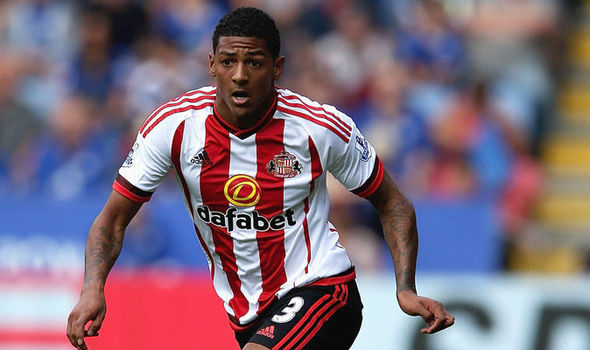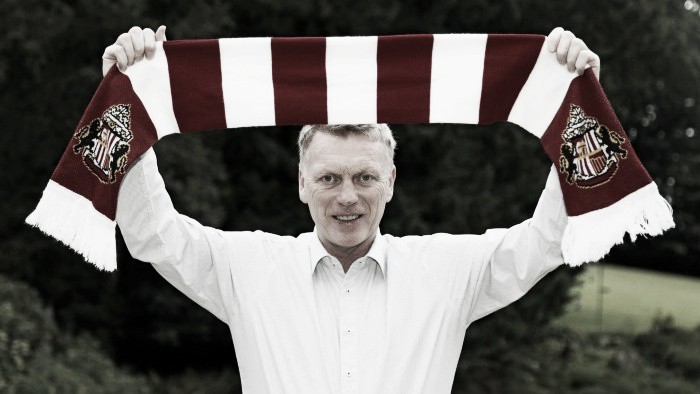Sunderland’s usual habit of nosediving into the bowels of the Premier League and then continuing their ascent back up is something we’ve got accustomed to seeing.
No matter who the manager is, take Paolo di Canio or Sam Allardyce, Sunderland never shed their monotony of pulling off the same antic every season and end up staying in the division with the help of it. But now, with Big Sam off to manage the English national side, former Manchester United manager David Moyes has taken over the reins at the Stadium of Light and the Scot will look to rebuilt his own reputation and that of Sunderland with his return to the country.
In what was a rather badly-planned and poorly-executed escape root plan from the eyes of the English media, Moyes’ stint at Real Sociedad failed to ignite envy and admiration from anyone else. The lack of knowledge of the Spanish game and the acclimatisation to the fast-paced English game proved in costly as Moyes struggled in Spain and hardly came close to bringing Sociedad out of the muddle that they were in, apart from lifting them from the relegation zone. And after what was a rein that made sure his reputation suffered tarnish, Moyes failed to rebuild what was lost and broken. At Sunderland, where Sam Allardyce’s direct football style had brought back the smile on the face of Black Cat fans, Moyes already has the foundation of what he would strive to build.
Moyes' style
During his 11-year long stint at Everton, Moyes inherited a side in peril of facing the drop from Walter Smith as the Toffees languished in the relegation zone. After finishing 15th in the opening season, Everton finished seventh next season, breaking Arsenal’s unbeaten run and at once raced ahead of Liverpool in their bid to make it to Europe. Moyes’ success at the club was founded on solid defensive organisation and a rather old-fashioned way of playing, that was focused on playing with width in attack and compactness in defending. Astute recruitment such as that of Tim Cahill, Mikel Arteta, Phil Jagielka, Leighton Baines and the blooming of youngsters such as Seamus Coleman, Wayne Rooney, Ross Barkley and many others were a key aspect in making Moyes what he is known for today.
At Manchester United, a paucity of time that was allowed to him and the impatience of the board and the fans in his approach of building the club proved detrimental. But within that period itself, Moyes had imposed himself on a side that was aging and had won the title the previous season due to Manchester City’s inconsistencies. The brave inclusion of Adnan Januzaj into the first-team squad proved to be a decision that is til-date lauded and although Marouane Fellaini did attract detractors during his disastrous opening season, he was a major reason why United qualified for the Champions League in the 2014-15 season.
How Sunderland avoided relegation last season
Sunderland’s adherence to the counter-attacking style that involved the fielding of two sitting midfielders in front of a tall back four came in handy under Allardyce. Lee Cattermole and Jan Kirchhoff did a commendable job in shielding the back four as Jermain Defoe ran the channels, with winter capture Wahbi Khazri and summer acquisition Yann M’Vila dropping deep from wide areas to help full backs. Allardyce’s tactics invited the opposition full backs to bomb forward, allowing Defoe to have only two defenders to take on during counters.

The centre-half pairing of Lamine Kone and Younes Kaboul proved decisive, flanked by the pace and positioning of Spurs loanee DeAndre Yedlin and Patrick van Aanholt.
Sunderland are a club that have got almost as much working class following as Everton did. They’ve got fans for whom the club is a life-partner and they visit the Stadium of Light expecting the side to play well, if not win. Previous few seasons haven’t been good in any way for them but Big Sam was someone whose approach to the game matched with the prevailing state of them in the football environment. Possession based football is something that is slowly eroding in the modern day and counter-attacking style is what the likes of Leicester City, Atletico Madrid, Hertha BSC, Iceland and Portugal did to punch above their weight. The approach isn’t pretty in any way but yields considerable results.
How both approaches match
And Moyes’ approach to the game is quite the same but is slightly more intent on using width on the pitch. The full-backs are afforded freedom to bomb forward on the break, making sure the transition from defense to attack is smooth. In van Aanholt, Sunderland arguably have one of the quickest full-backs in the league, who is very good going forward and is decent when defending as well. They’ve already got hard-working wingers in Khazri and Lens, who are willing to drop deep and do the dirty work when demanded.
At United, the stature and demands of the club and its fans were too much for him in too little time. It was also about filling in the shoes of Sir Alex, replicating whom is a job next to impossible. At Sunderland, he would be back without any more such crippling burdens, looking to make a new start at a club that already has some foundations in place for his style to progress and work. The likes of Jordan Henderson, Jack Colback and Grant Leadbitter have come through the academy at the Stadium of Light and players like young Duncan Watmore and Jordan Pickford are coming in too. The Sunderland Under-21 side features regularly in the first division of Under 21 Premier League, finishing second to Manchester United last season.
"David Moyes was my No.1 managerial target for the last five appointments," said owner Ellis Short. After the exits of Di Canio, Poyet and Advocaat, Moyes is someone who needs a project after knowing that the only way forward is doing what he does best. A reason for Poyet’s frustrations at the club was the lack of control that he had over the transfer-related affairs at the club. The signings that under the former Chelsea and Tottenham Hotspur player were made after Short’s decision and not after Poyet’s own willingness to sign them. It's a manager who knows what his team needs the best just because he’s someone who has the most innate knowledge of the team he has. Everton followed a different structure and everything that pertained to transfers and recruitment was an onus that fell on Moyes himself. And the control and restrictions laid by the chairman and working under them would be something Moyes would not like, if he desires to make a whole new beginning.
Things are well in place for Moyes to start things off in his own, original way. And Sunderland need him as much as the Scotsman needs Sunderland.









































